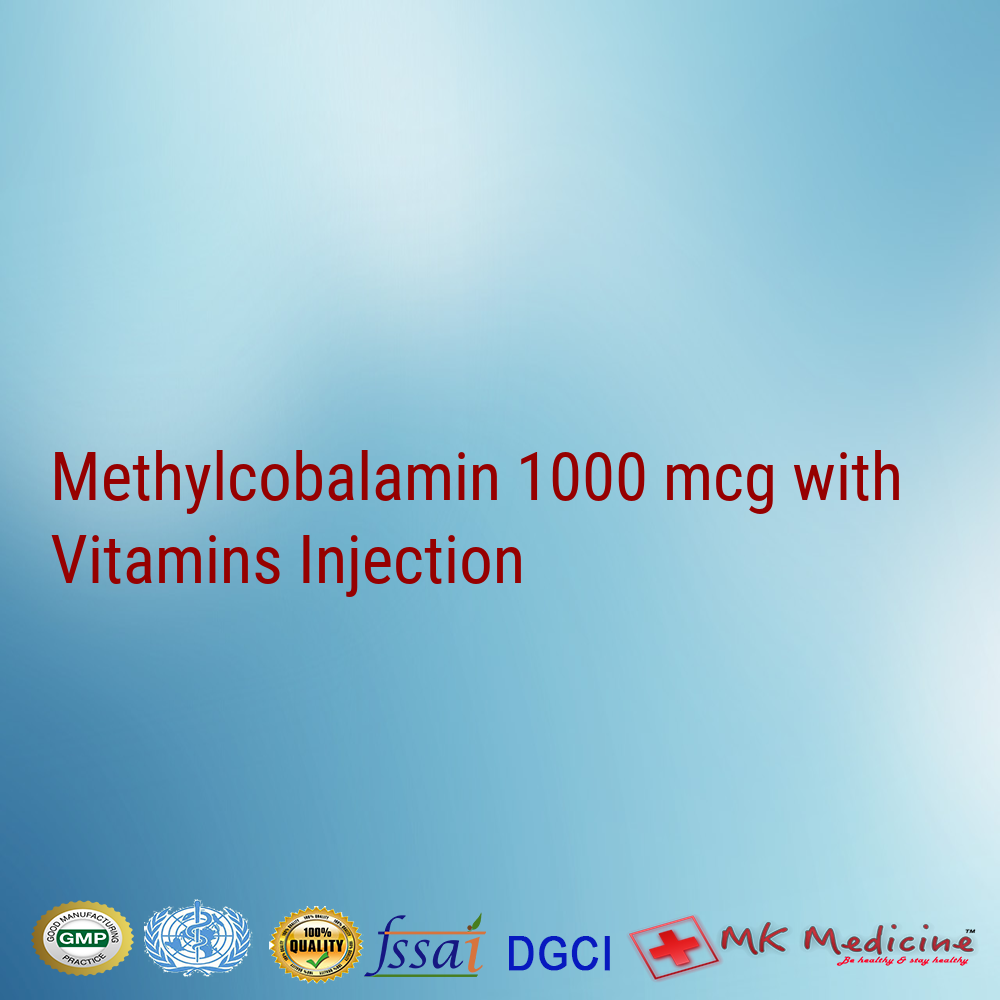Methylcobalamin injections are prepared to be delivered intravenously or intramuscularly. Injectable methylcobalamin doesn’t pass through the digestive system, which means that it is likely to have a quicker effect on the body compared to oral pills.
Some people also believe injections to be more effective than oral preparations. However, some studies have shown that the effectiveness of oral and injectable methylcobalamin is similar. Sublingual formulations are another option that avoids the digestive tract for people who do not like getting needles.
According to the Natural Medicines Database, injectable methylcobalamin has been used for the following purposes:
- Liver disease
- Kidney disease
- Psoriasis
- Malignancy
- Hemorrhage
- Thyrotoxicosis
- Chronic fatigue syndrome
- Fatigue and tiredness
- Orthostatic tremor
- Anemia
- The prevention or treatment of vitamin B12 deficiency
MK Medicine is a leading pcd franchise provider, contract manufacturer and hospital supplier of WHO-GMP certified Methylcobalamin 1000 mcg with Vitamins Injection
Methylcobalamin injections may interact with certain prescription medications and supplements, including chloramphenicol, folic acid, potassium and vitamin C.
People who suffer from certain conditions, including megaloblastic anemia, Leber’s disease, cobalt sensitivity and cobalamin sensitivity, should not take methylcobalamin injections unless otherwise directed by a licensed physician.
Because high dosages of methylcobalamin may cause severe symptoms and adverse effects, you should never take more of this vitamin than you need. When beginning supplementation for the first time, start with a low dose and gradually increase the amount you consume.
Before beginning methylcobalamin injections or any other supplement, talk to your doctor to make sure that the supplement is safe and appropriate for you. If you begin experiencing worrisome symptoms while taking methylcobalamin injections, discontinue your use of the supplement and talk to your doctor.
Seek immediate medical treatment if you experience acute adverse effects while using this product.
Methylcobalamin injections may cause the following side effects:
- Dysphagia
- Nausea
- Hypokalemia
- Gout
Some people have also had allergic reactions to methylcobalamin injections. If you believe you are experiencing an allergic reaction because of methylcobalamin injections, seek medical treatment immediately.
The body requires a certain amount of vitamin B12 in order to function properly. However, too much vitamin B12 can be dangerous. Studies have found that high levels of B12 may be linked to decreased survival rates in elderly patients who are hospitalized.
High levels of vitamin B12 have also been identified as a sign of adult-onset Still’s disease. Furthermore, some studies have suggested a link between too much vitamin B12 and the development of lung or prostate cancer.
According to the Natural Medicines Database, research has shown that methylcobalamin injections are effective for several different purposes, including the treatment or prevention of vitamin B12 deficiency, pernicious anemia and Imerslund-Grasbeck disease.
Studies have also shown that injectable methylcobalamin is likely effective for the treatment of hyperhomocysteinemia and cyanide poisoning. In addition, methylcobalamin injections may be effective for age-related macular degeneration.
Studies have shown that methylcobalamin injections may not be effective in the treatment of stroke or circadian rhythm sleep disorders. Likewise, current research indicates that injectable methylcobalamin has no significant effect on cognitive performance.
Methylcobalamin injections should always be administered by a trained medical practitioner, to ensure the correct dosage is used and to reduce the risk of side effects.
Important Notice:- The Database is still under development and may contain inaccuracies. It is not intended as a substitute for the expertise and judgement of your physician, pharmacist or other healthcare professional. It should not be construed to indicate that the use of any medication in any country is safe, appropriate or effective for you. Consult with your healthcare professional before taking any medication.


Methylcobalamin 1500 mcg Injection